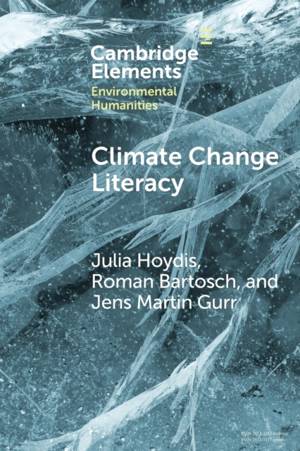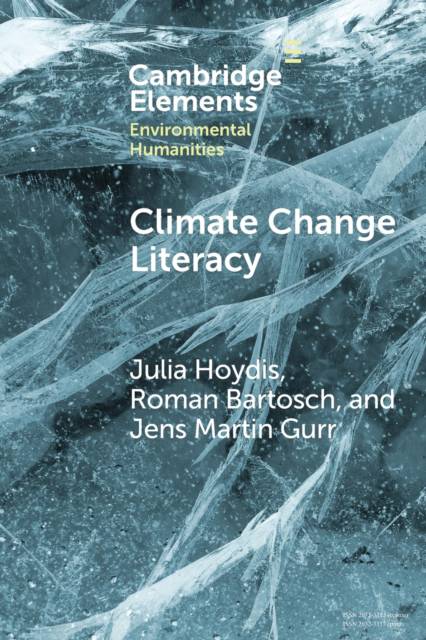
- Afhalen na 1 uur in een winkel met voorraad
- Gratis thuislevering in België vanaf € 30
- Ruim aanbod met 7 miljoen producten
- Afhalen na 1 uur in een winkel met voorraad
- Gratis thuislevering in België vanaf € 30
- Ruim aanbod met 7 miljoen producten
Zoeken
Omschrijving
This Element presents a necessary intervention within the rapidly expanding field of research in the environmental humanities on climate change and environmental literacy. In contrast to the dominant, science-centred literacy debates, which largely ignore the unique resources of the humanities, it asks: How does literary reading contribute to climate change communication? How does this contribution relate to recent demands for environmental and related literacies? Rather than reducing the function of literature to a more pleasurable form of information transfer or its affective dimension of evoking sympathy, climate change literacy thoroughly reassesses the cognitive, affective, and pedagogic potentials of literary writing. It does so by analysing a selection of popular climate novels and by demonstrating the role of fiction in fostering a more adequate understanding of, and response to, climate change. This title is also available as Open Access on Cambridge Core.
Specificaties
Betrokkenen
- Auteur(s):
- Uitgeverij:
Inhoud
- Aantal bladzijden:
- 75
- Taal:
- Engels
- Reeks:
Eigenschappen
- Productcode (EAN):
- 9781009341998
- Verschijningsdatum:
- 22/06/2023
- Uitvoering:
- Paperback
- Formaat:
- Trade paperback (VS)
- Afmetingen:
- 152 mm x 229 mm
- Gewicht:
- 117 g

Alleen bij Standaard Boekhandel
+ 63 punten op je klantenkaart van Standaard Boekhandel
Beoordelingen
We publiceren alleen reviews die voldoen aan de voorwaarden voor reviews. Bekijk onze voorwaarden voor reviews.











